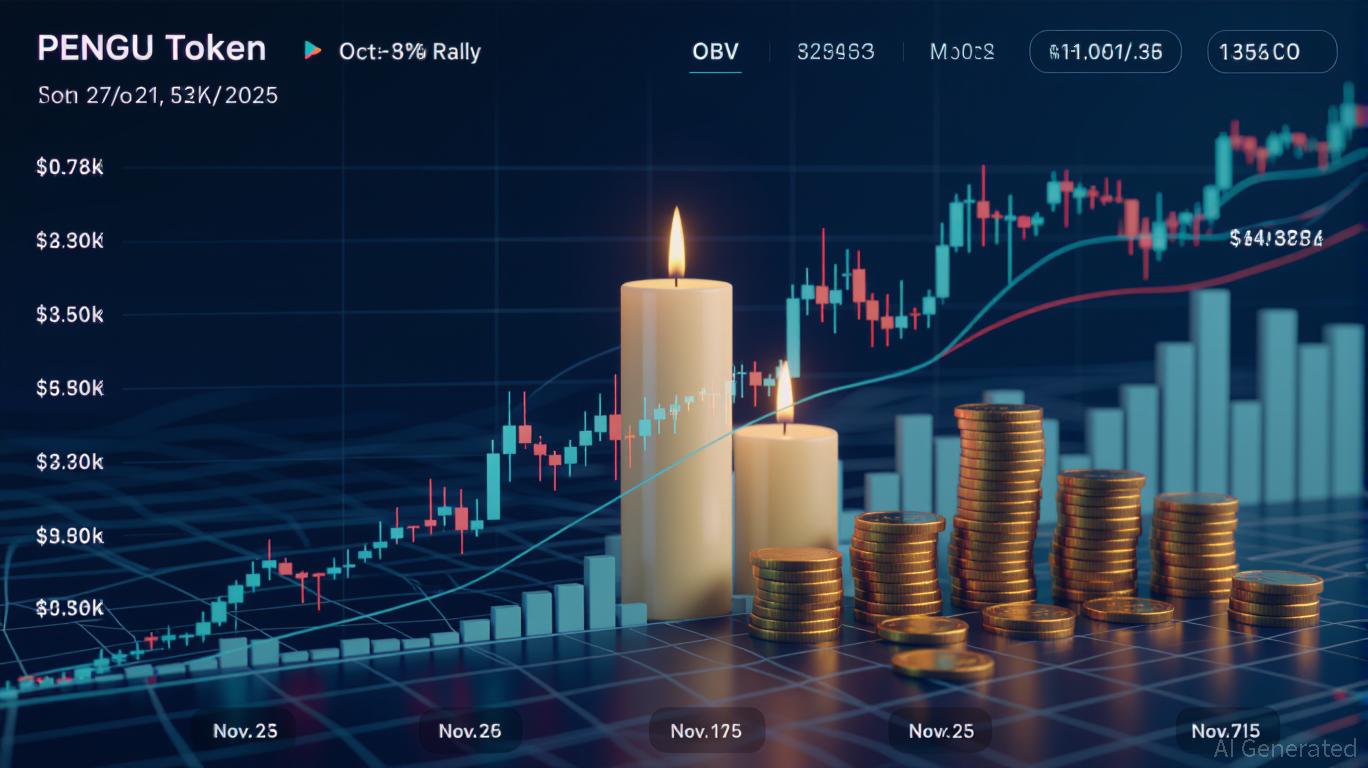Between Major AI Advances and Divided Partnerships, Summit Aims to Address Supply Chain Challenges
- Global Procurement Summit in Amsterdam addresses supply chain resilience, AI infrastructure, and partnership risks amid economic uncertainty. - Nebius Group's $19.4B Microsoft deal highlights AI's role in scaling compute power for energy/manufacturing sectors, despite macroeconomic risks. - Marriott-Sonder partnership collapse over default underscores fragility of cross-industry collaborations and loyalty program disruptions. - C3.ai's 50% stock plunge and founder departure reveal procurement risks from
The Global Procurement Summit, scheduled to take place in Amsterdam, will tackle the shifting landscape of strategic sourcing and supply chain durability as the global economy undergoes rapid transformation. With companies facing both technological advancements and geopolitical instability, the summit will spotlight breakthroughs in AI-powered infrastructure and the necessity of flexible partnerships.
One of the summit’s central themes will be how artificial intelligence can strengthen supply chain operations.

The summit will further explore procurement hurdles brought to light by recent business alliances. Marriott International’s sudden cancellation of its licensing deal with Sonder—a company offering apartment-style stays—serves as a warning. Their collaboration, which brought Sonder’s properties into Marriott’s Bonvoy loyalty program, ended after Sonder defaulted, forcing guests to quickly change their reservations, according to a
Additionally, the procurement sector faces added complexity due to leadership changes and financial troubles at major firms. C3.ai, an enterprise AI software provider, is considering a sale after its founder Thomas Siebel resigned for health reasons, as reported by a
Organizers of the summit stress that true resilience depends not only on technological progress but also on nimble leadership. As organizations like
Disclaimer: The content of this article solely reflects the author's opinion and does not represent the platform in any capacity. This article is not intended to serve as a reference for making investment decisions.
You may also like
What Factors Are Fueling the Rapid Popularity of Hyperliquid, the Emerging Trading Platform?
- Hyperliquid captured 73% of decentralized perpetual trading volume in Q3 2025, driven by $303B in trading volume and $5B TVL growth. - Retail demand fueled by 20x leverage on BTC/XRP and HIP-3 protocol optimization boosted $47B weekly volumes and $15B open interest. - Strategic partnerships like Felix HAUS agreement and 21Shares ETF filing expanded HYPE token utility while rejecting VC funding reinforced decentralization. - $10.8B HYPE token unlock poses 45% supply dilution risk, while competitors like A

PENGU Token's Latest Price Rally and Chart Patterns: A Brief Momentum Opportunity Among New Memecoins
- PENGU token surged 12.8% in 24 hours amid crypto rebound, driven by Bitcoin's 4.3% rise to $106,100. - Short-term bullish momentum emerged with 33% volume spike to $202M, but long-term bearish indicators persist via declining OBV and converging MACD. - Whale inflows ($157K) and a 13.69% token burn boosted optimism , though $7.68M in leveraged short positions highlight market volatility. - PENGU's price action reflects memecoin dynamics, balancing Bitcoin-linked risks with speculative potential from real-

UAE’s Digital Dirham: Shaping a Diverse Future for International Finance
- UAE completes first government transaction using Digital Dirham CBDC via mBridge platform, settling in under two minutes. - Pilot by UAE Ministry of Finance and Dubai Department of Finance validates cross-border and domestic payment capabilities without intermediaries. - Officials highlight CBDC's role in enhancing financial transparency, reducing settlement times, and advancing UAE's fintech leadership goals. - Global CBDC adoption grows with 137 countries exploring digital currencies, as UAE plans phas

Yen-backed Stablecoin Initiative May Challenge the Dollar’s Leading Role in Digital Finance
- JPYC, Japan's yen-pegged stablecoin issuer, plans to allocate 80% of 10-trillion-yen token proceeds to JGBs, aiming to fill gaps left by BOJ's stimulus tapering. - The strategy could reshape Japan's bond market as BOJ reduces its 50% JGB ownership stake, with JPYC CEO predicting global adoption of stablecoin-driven government bond demand. - Japan's FSA supports innovation through sandbox programs, including a pilot with major banks , while regulators warn stablecoins might divert funds from traditional b
